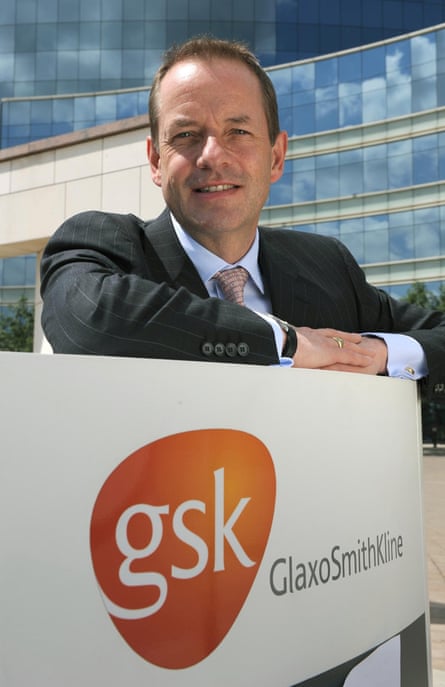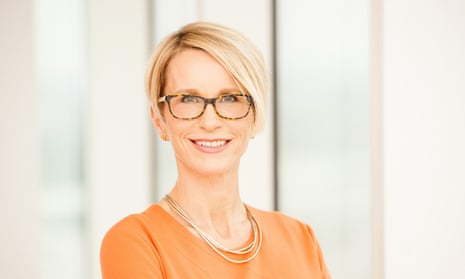Emma Walmsley is in line to become one of just seven female CEOs in the FTSE 100, having been named as chief executive designate of Britain’s biggest drugs company.
When she takes over GlaxoSmithKline from Sir Andrew Witty on 1 April 2017, Walmsley will be running the biggest of those seven companies, with GSK ranking fourth in FTSE 100 with a market value of £80bn.
Investors gave a lukewarm response to the appointment of the 47-year-old, thought to be one of four internal candidates for the top job and someone with a marketing and consumer products – rather than scientific – background. Shares dropped 0.4% after the announcement.
Walmsley joined GSK in 2010 after 17 years at L’Oréal. She leads GSK’s consumer healthcare business, which was established in 2015 after a deal with Novartis, in which Walmsley was instrumental.
The married mother of four was born in Barrow-in-Furness, Cumbria, and grew up in Kent. She studied classics and modern languages at the University of Oxford.
Walmsley brings considerable international experience to a business that generates most revenue outside Europe. At L’Oréal, she held a variety of marketing and general management roles in the UK, Europe, the US, and China.
In her last job at the French cosmetics company, Walmsley ran the company’s Chinese consumer products business out of Shanghai for three years, overseeing global brands including L’Oréal Paris, Maybelline and Garnier, as well as Mininurse, a Chinese skincare brand.
At the time of her move to GSK in 2010, Advertising Age quoted company insiders surprised at her departure from L’Oréal, where she was tipped for a senior global management role.
Walmsley was 33rd in Fortune’s 2016 list of the most powerful women outside the US – she can expect a higher ranking next year after landing the top job at GSK.
She has kept a relatively low media profile, although she has revealed that she enjoys yoga and, in a GSK corporate video, said she “doesn’t like the pomposity of big business language and excessive PowerPoints”.

Analysts believe her consumer products background probably safeguards the future of the consumer business in GSK for the time being, at a time when some investors favour a break-up of the group.
The consumer healthcare division accounts for 25% of GSK’s revenues, with vaccines accounting for about 15% and the main pharmaceuticals business accounting for the rest.
Walmsley currently leads 21,000 workers in the business, which makes over-the-counter pain relief drugs such as Panadol, toothpaste brands including Sensodyne and Aquafresh, as well as cold and flu and smoking cessation products. When she takes on the top role at GSK, she will have a global workforce of 100,000.
As manager of the Allianz UK equity income fund, Simon Gergel has a 6% stake in GSK, and says investor reaction to Walmsley’s appointment will be mixed. It was positive for those who support the existing strategy of diversification, and negative for those who would prefer a demerger of the consumer arm, he said.
“Overall, the move reduces any dividend/strategy risk an outsider may have posed and suggests that GSK’s new CEO will continue to build on the legacy of her predecessor Sir Andrew Witty.”
Walmsley is likely to look again at group strategy. The biggest challenges include the pressure on drugs makers to reduce prices, particularly in the US, as well as increased competition in generic drugs.




